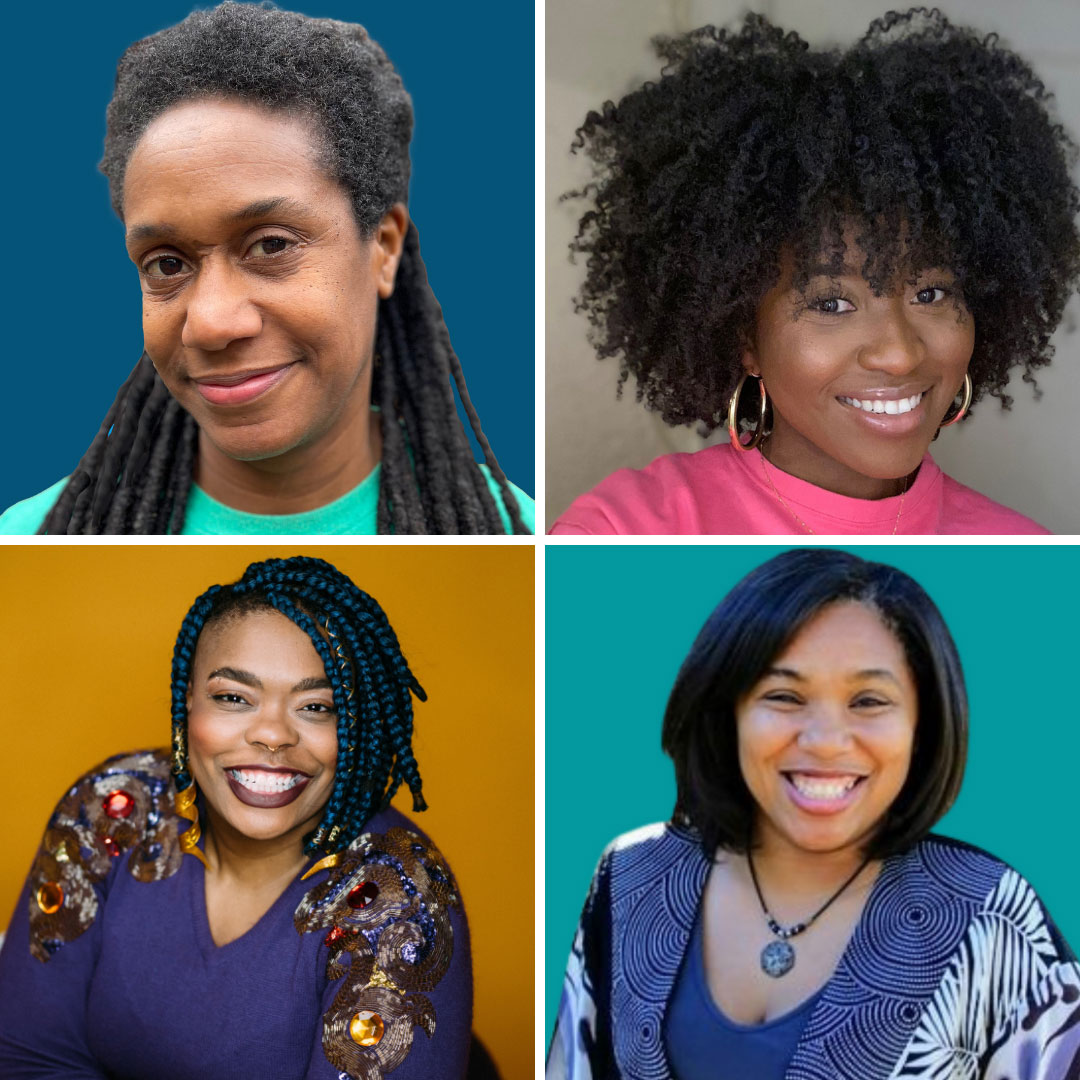Multiplying Good realizes that expanding diversity, equity, inclusion, and belonging is a process and not a destination. This year, we sat down and asked three of our team members about their personal experiences around being a Black Leader within the nonprofit space. They were each asked about their experiences from the past, their current perspectives, and about what they would like to see in the future. The result is the article that follows, a collaborative piece written in partnership with Artavia Berry, Jessica Vann, and Tysha Popo and edited by Marilyn McNeal.

As an organization, Multiplying Good acknowledges that we do not have complete answers. What we do have is commitment – commitment to on-going learning and on-going listening so that we can help create a workplace that matches our intentions. As we have seen through powerful and inspiring stories of service within our community, we know we can get there even though there is still so much work to be done. Through sharing personal experiences and stories, we invest in ways that the work can move forward.
When Artavia Berry worked in global youth leadership development, she traveled with a group of inner-city students to a rural village in Mali, West Africa. The students were a diverse group, representing all walks of life. In the Malian village, the youth group’s service project involved working alongside villagers to build a local school. As students mixed concrete, sand, and water, they learned that these materials would eventually become bricks. As they stacked the bricks, they saw the building’s foundation take shape. Every new experience seemed to open the students’ eyes to the importance of modern conveniences, like running water and electricity, that they had previously taken for granted.
Berry, Multiplying Good’s San Francisco Bay Area Executive Director, saw the students struggle to make sense of everything they were learning. None more so than “Dee.” Dee was a good kid, but one saddled with a lot of challenges; violence at home, homelessness, and emerging questions about their identity.
Dee, along with the other students, began to open up about their own background; the challenges they faced and their fears. As students shared their vulnerabilities and the trauma they’d experienced in their young lives, tears began to flow. When the trip came to a close, the students emerged from the experience with a profound respect for all of the advantages they now understood that they had. Foremost in Artavia's mind was their new level of appreciation for how easily they could access education in their communities.
Dee returned home with a sharper focus on their education, Artavia explained. They graduated on time, went on to college, and attended law school. After passing the bar exam, they became an attorney in Baltimore, where they still practice today.
For Artavia, Dee is a success story, but for Black leaders in the nonprofit space, success is often tempered with internal and external challenges. “I have seen young people find their voices, find their calling, and pursue their dreams. On the other hand, it has been emotionally taxing being one of the very few Black leaders bringing my life experiences into the nonprofit sector.”
Jessica Vann, Multiplying Good’s Chicago-based Manager Programs & Partnerships, agrees. “I started working with youth when I was 18. Little did I know the journey and uphill battle that was ahead of me as I continued to venture into working with youth and becoming a leader in this field.” Jessica cites othering, gaslighting, microaggressions, and not feeling heard or seen as exhausting hazards that Black employees often experience in the nonprofit workplace.
To address this, Vann points to the power of relationship building as a means to understand the full person. “Despite background differences, there is always an opportunity to learn from your colleagues. Knowing your team at its core, will only make one's leadership stronger.”
When asked about her past experiences as a Black woman working in the nonprofit sector, Tysha Popo, Multiplying Good’s Technology Associate, offered a hopeful outlook. “The organizations I’ve worked with are trying to be more diverse, but it hasn’t been an easy task.”
So, what does a diverse, equity focused workplace look like? “Today at Multiplying Good, we have taken up the task of unpacking this very question in our own workplace,” said Artavia. She recalled the summer of 2020 when George Floyd was murdered by police officer Derek Chauvin.
At an All Team meeting held at Multiplying Good, the horrific situation was discussed. One of the takeaways from the meeting was that intention and impact are two different things. Nonprofit organizations committed to cultivating an inclusive workplace have a duty to ask if the actions or words they are using align with the desired impact. “If they don’t, genuinely explore why not. Learn from others and apply that learning.” Berry stated. “Apologize when your impact has not aligned with your intention and ask how it can be done differently in the future.”
One of the most basic efforts an organization can take involves listening and learning from the Black experience as voiced by Black employees. To move forward and cultivate the best in every employee, nonprofits can create an environment where the experiences that Black employees bring forward are validated as real, even if they are difficult to understand.
Sitting in the discomfort of difficult conversations while challenging defensive feelings that often arise is just one of the steps that can lead to the evolution of respectful workplaces that cultivate the success of Black leaders. Compassion, curiosity, and the willingness to take advice when given are other approaches that are often mentioned.
“Engage in training on topics like ‘Implicit Bias’, ‘What is Racial Equity?’, and ‘Being an Ally’, Berry suggested. “Commit to volunteer for a full year, build relationships, walk in the communities where Black people live, and give yourself permission to create a bond with a community different from your own.”
While risk taking may be something most organizations shy away from, it seems clear that nonprofits have to embrace the messiness that change brings in order to make sure that actions are aligned with mission statements and values. Challenging and thought provoking conversations and advocacy and a willingness to look at things from an equitability and justice lens mean that “we can start to move the needle towards belonging and inclusion,” Vann added.
In the wake of George Floyd’s murder, Multiplying Good accelerated their efforts to move Diversity, Equity, Inclusion and Belonging work to the top of our organizational priority list. Under the leadership of a DEIB Task Force led by Renee Brown and Steve Zide, Multiplying Good has begun engaging in a new level of organizational reflection. Through the guidance of the Burns Brothers, Multiplying Good has held interviews and focus groups with staff members, local and national board members, and with constituent groups throughout the organization. The feedback has been raw, honest, and eye-opening.
Training on implicit bias, self-awareness, and learning how to create organizational behavioral changes have been suggested.
However, transforming an organization’s work culture is not something that can happen overnight. For Black Leaders working in nonprofits, the process can be exhausting and the cause of little hope. Artavia, Jess, and Tysha acknowledged this while offering insights about self-care and the role of self-affirming perspectives.
“The number one tool in my tool-kit is a spirit of gratitude and humility,” Artavia explained. “Knowing that my ancestors didn’t have access to the spaces I do today and knowing how they fought, bled, and died so I would have these possibilities keeps me centered, focused and grateful. It drives my motivation to work, to heal, to unpack, to discuss and to work for change; no matter what I face, their experience was far more difficult, and I owe it to them to find a way to heal, to keep the faith and to keep going.”
Jess spoke candidly about staying grounded within her identity as a Black woman. “It’s important to take the full parts of who we are to the spaces we occupy in our workplace,'' she said. “I had to learn that this was okay. Most importantly, that it should be the norm.” She added that Black Leaders often take on additional emotional labor and have to take extra care of themselves as a result. “It’s important to remind yourself you are worthy to be here. To work from your ‘why’ as a grounding to sustain yourself mentally and physically.”
Tysha reflected on one of her heroines, Shirley Chisholm, the first African American Congresswoman (1968) who campaigned for the Democratic presidential nomination in 1972. “As a Black woman, she broke the glass ceiling in a space that had been dominated by white men. She never let that fact stop her and consistently advocated for women and minorities throughout her career in Congress. Her motto and title of her autobiography, Unbought and Unbossed is a testament to her growth from a young girl from Brooklyn to a woman holding one of the highest seats in America. She lived her truth and fought for what she believed in – challenging social customs and advocating for the unheard. She played by her rules and paved a way for others, just like me. One of my favorite statements she made is “If they don’t give you a seat at the table, bring a folding chair.” She is a true trailblazer and inspires me to never give up and to continue to follow my dreams.”

